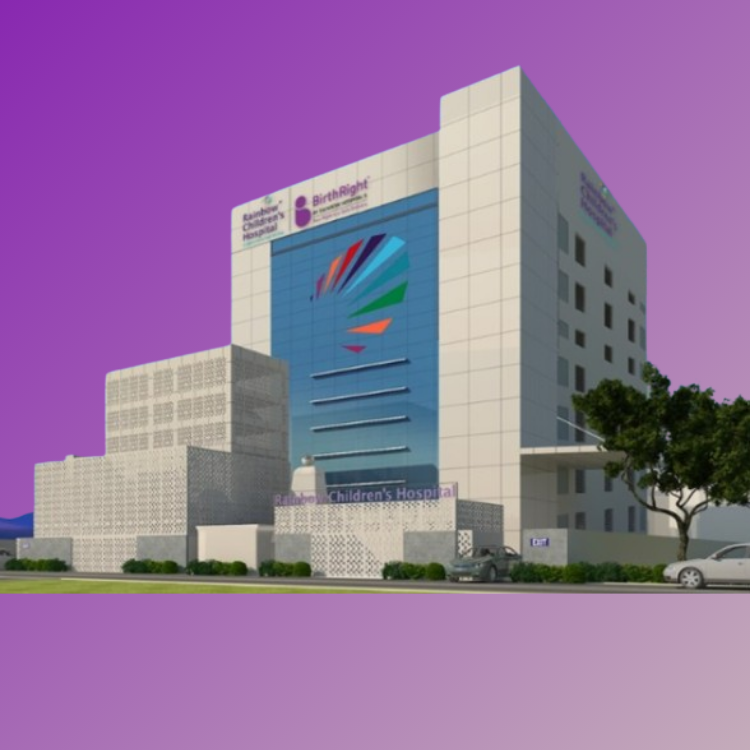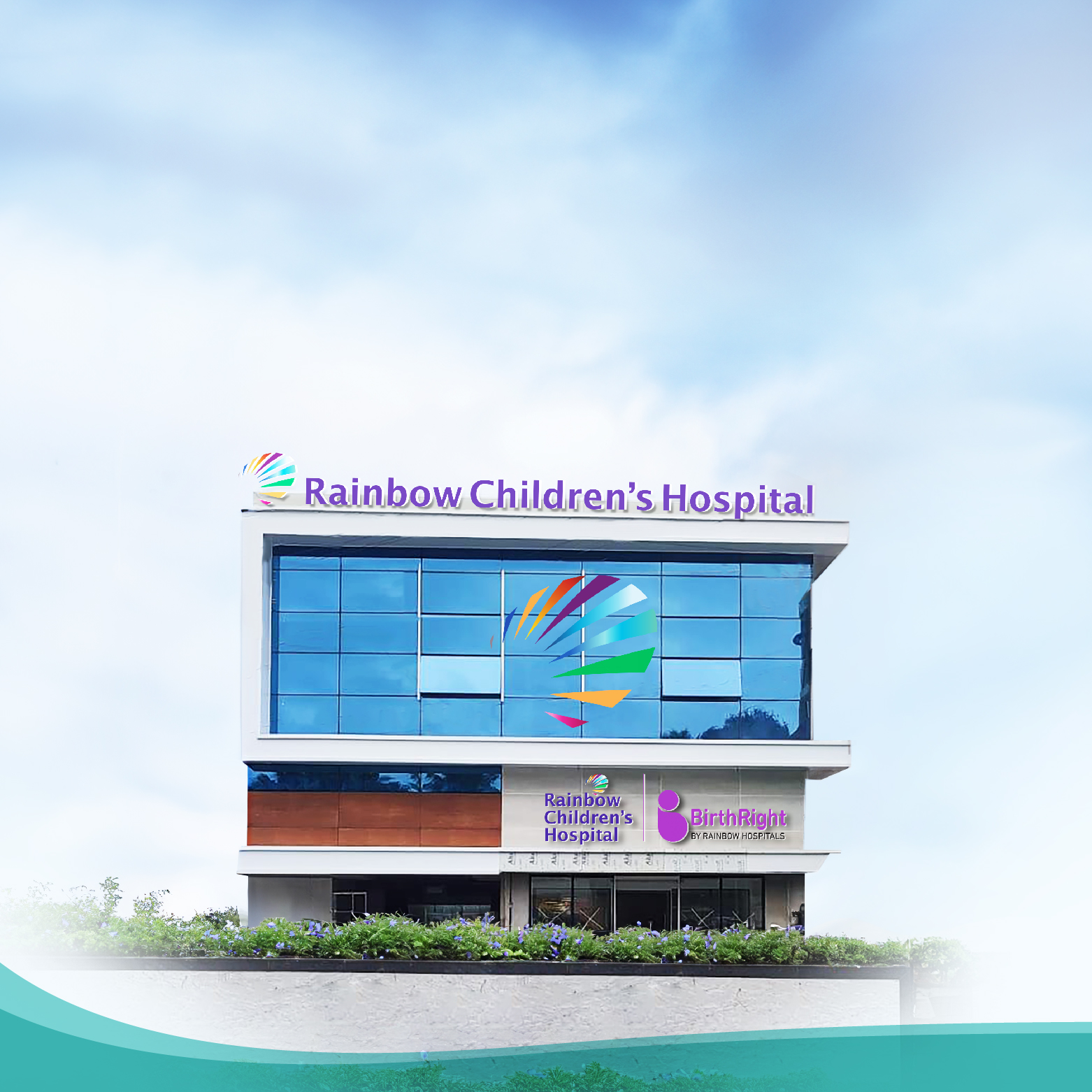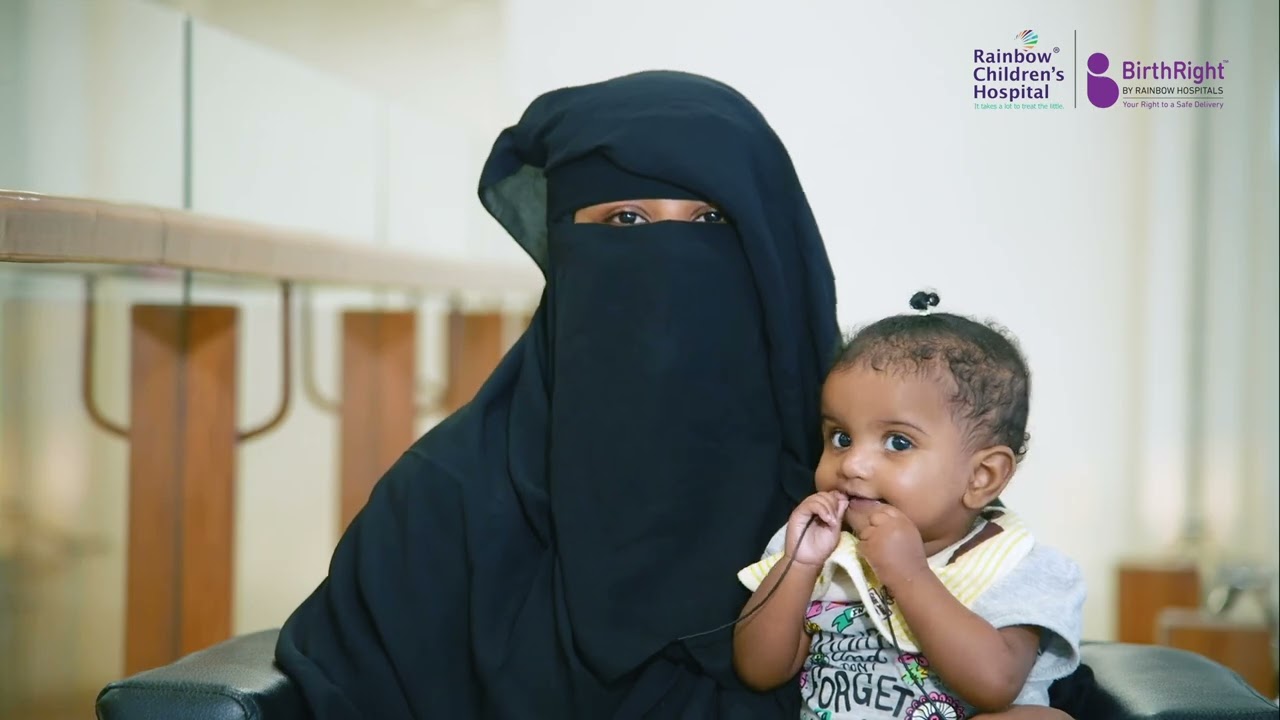Seamless support from diagnosis to post treatment care
Pediatric Gastroenterology and Hepatology
Gastroenterology:
Pediatric liver ailments in children have emerged as a burgeoning concern, carrying significant ramifications. Numerous liver disorders in the pediatric population, including conditions like cirrhosis and hepatocellular carcinoma, serve as precursors to chronic hepatopathies that persist into adulthood. Inherited hepatitis conditions, such as chronic hepatitis C, autoimmune hepatitis, and genetic disorders like hemochromatosis or cystic fibrosis, are among the diverse array of inherited hepatic disorders frequently encountered in the pediatric realm.
Rainbow Children's Hospital's Pediatric Liver Transplant program has undertaken more than 200 liver transplant procedures, demonstrating a commendable survival rate exceeding 90%. Their proficiency extends to the management of the most intricate liver transplant cases, bolstered by the advanced Neonatal Intensive Care Unit (NICU) and Pediatric Intensive Care Unit (PICU) teams. These teams have achieved notable success in executing a substantial volume of liver transplants, encompassing cadaveric auxiliary transplants and mono-segment transplants. Furthermore, they possess the requisite expertise, competence, and resources to undertake multifaceted transplants, including the simultaneous transplantation of both kidneys and the liver.

Find a Doctor
Expertise you can trust, Meet our esteemed doctors who bring exceptional knowledge, compassion, and innovation to provide top-notch care for your health and well-being.
Our Hospitals and ClinicsOur Hospitals and Clinics
Rainbow Children's Hospital stands as a testament to the hospital's continual pursuit of excellence and innovation, providing specialized care for women and children.
Request a Call back
Tap to Fill FormRequest a Call back
Blogs
Discover our most recent health articles provided by our reliable experts.
What Are People Saying About Us
Embark on a journey of inspiration and hope with our patient success stories, complemented by informative videos from our dedicated doctors.
Quick Links
- Best Pediatric Hepatologists In Hyderabad
- Best Pediatric Hepatologists In Delhi
- Best Pediatric Hepatologists In Bangalore
- Best Pediatric Hepatologists In Chennai
- Best Pediatric Hepatologists In Vijayawada
- Best Pediatric Hepatologists In Vizag
- Best Pediatric Hepatologists In Guindy
- Best Pediatric Hepatologists In Banjara Hills
- Top Pediatric Hepatologists in India
- Pediatric Hepatologists near me in Banjarahills
- Hepatitis B in Children, Hyderabad
- Liver Transplant in Children, Hyderabad
- Fatty Liver Disease in Children, Hyderabad
- Liver Failure in Children, Hyderabad
- Diamond-Blackfan Anemia in Children, Hyderabad
- Esophageal Achalasia in Children, Hyderabad
- Rotavirus Infections in Children, Hyderabad
- Juvenile Polyposis Syndrome in Children, Hyderabad
- Blended Diet in Children, Hyderabad
- Lactose Intolerance in Children, Hyderabad
- Microvillus Inclusion Disease in Children, Hyderabad
- BRAVO pH Test in Children, Hyderabad
- Eosinophilic Esophagitis in Children, Hyderabad in Children, Hyderabad
- Glucose Galactose Malabsorption in Children, Hyderabad
- Inflammatory Bowel Disease in Children, Hyderabad in Children, Hyderabad
- Tufting Enteropathy in Children, Hyderabad
- Chronic Intestinal Pseudo-Obstruction in Children, Hyderabad
- Colonic Manometry in Children, Hyderabad
- Esophageal Impedance in Children, Hyderabad
- Hepatitis B in Children, Bengaluru
- Liver Transplant in Children, Bengaluru
- Fatty Liver Disease in Children, Bengaluru
- Liver Failure in Children, Bengaluru
- Diamond-Blackfan Anemia in Children, Bengaluru
- Esophageal Achalasia in Children, Bengaluru
- Rotavirus Infections in Children, Bengaluru
- Juvenile Polyposis Syndrome in Children, Bengaluru
- Blended Diet in Children, Bengaluru
- Lactose Intolerance in Children, Bengaluru
- Microvillus Inclusion Disease in Children, Bengaluru
- BRAVO pH Test in Children, Bengaluru
- Eosinophilic Esophagitis in Children, Bengaluru in Children, Bengaluru
- Glucose Galactose Malabsorption in Children, Bengaluru
- Inflammatory Bowel Disease in Children, Bengaluru in Children, Bengaluru
- Tufting Enteropathy in Children, Bengaluru
- Chronic Intestinal Pseudo-Obstruction in Children, Bengaluru
- Colonic Manometry in Children, Bengaluru
- Esophageal Impedance in Children, Bengaluru
- Hepatitis B in Children, Delhi
- Liver Transplant in Children, Delhi
- Fatty Liver Disease in Children, Delhi
- Liver Failure in Children, Delhi
- Best Treatment for Diamond-Blackfan Anemia in Children, Delhi
- Esophageal Achalasia in Children, Delhi
- Rotavirus Infections in Children, Delhi
- Juvenile Polyposis Syndrome in Children, Delhi
- Blended Diet in Children, Delhi
- Lactose Intolerance in Children, Delhi
- Microvillus Inclusion Disease in Children, Delhi
- BRAVO pH Test in Children, Delhi
- Eosinophilic Esophagitis in Children, Delhi in Children, Delhi
- Glucose Galactose Malabsorption in Children, Delhi
- Inflammatory Bowel Disease in Children, Delhi in Children, Delhi
- Tufting Enteropathy in Children, Delhi
- Chronic Intestinal Pseudo-Obstruction in Children, Delhi
- Colonic Manometry in Children, Delhi
- Esophageal Impedance in Children, Delhi
- Hepatitis B in Children, Chennai
- Liver Transplant in Children, Chennai
- Fatty Liver Disease in Children, Chennai
- Liver Failure in Children, Chennai
- Diamond-Blackfan Anemia in Children, Chennai
- Esophageal Achalasia in Children, Chennai
- Rotavirus Infections in Children, Chennai
- Juvenile Polyposis Syndrome in Children, Chennai
- Blended Diet in Children, Chennai
- Lactose Intolerance in Children, Chennai
- Microvillus Inclusion Disease in Children, Chennai
- BRAVO pH Test in Children, Chennai
- Eosinophilic Esophagitis in Children, Chennai in Children, Chennai
- Glucose Galactose Malabsorption in Children, Chennai
- Inflammatory Bowel Disease in Children, Chennai in Children, Chennai
- Tufting Enteropathy in Children, Chennai
- Chronic Intestinal Pseudo-Obstruction in Children, Chennai
- Colonic Manometry in Children, Chennai
- Esophageal Impedance in Children, Chennai
- Hepatitis B in Children, Vijayawada
- Liver Transplant in Children, Vijayawada
- Fatty Liver Disease in Children, Vijayawada
- Liver Failure in Children, Vijayawada
- Diamond-Blackfan Anemia in Children, Vijayawada
- Esophageal Achalasia in Children, Vijayawada
- Rotavirus Infections in Children, Vijayawada
- Juvenile Polyposis Syndrome in Children, Vijayawada
- Blended Diet in Children, Vijayawada
- Lactose Intolerance in Children, Vijayawada
- Microvillus Inclusion Disease in Children, Vijayawada
- BRAVO pH Test in Children, Vijayawada
- Eosinophilic Esophagitis in Children, Vijayawada in Children, Vijayawada
- Glucose Galactose Malabsorption in Children, Vijayawada
- Inflammatory Bowel Disease in Children, Vijayawada in Children, Vijayawada
- Tufting Enteropathy in Children, Vijayawada
- Chronic Intestinal Pseudo-Obstruction in Children, Vijayawada
- Colonic Manometry in Children, Vijayawada
- Esophageal Impedance in Children, Vijayawada
- hepatitis-b-in-children-vizag
- liver-transplant-in-children-vizag
- fatty-liver-disease-in-children-vizag
- liver-failure-in-children-vizag
- diamond-blackfan-anemia-in-children-vizag

















































